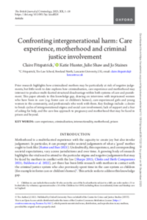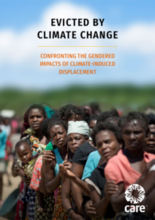Displaying 921 - 930 of 14551
During April and May 2023, the Ukrainian Ministry of Social Policy joined forces with a broad range of civil society actors to facilitate five days of learning and intensive strategic planning on deinstitutionalization. This document presents the key findings and recommendations from those five days of exchange of ideas and strategic planning. It is hoped that these recommendations will inform the government’s strategic planning process, as well as providing insight for donors to inform their priorities.
During this webinar, participants will examine the current situation, provide historical context, and discuss the response. Ukrainian organizations engaged in the frontline response will share their perspectives, and participants will consider how the international community can support family tracing and reunification.
GENOA, Neb. (AP) — Archeologists resumed digging Tuesday at the remote site of a former Native American boarding school in central Nebraska, searching for the remains of children who died there decades ago.
This paper explores how criminalisation, care experience and motherhood may intersect to produce multi-faceted structural disadvantage within both systems of care and punishment in England.
This article presents the development, current status and contemporary challenges of foster care in Poland and Hungary.
The Indian Child Welfare Act (ICWA) was passed in 1978 as an effort to curtail the disproportionate numbers of Native children being removed from their parents and placed with white adoptive families or sent to boarding schools designed to assimilate them to white culture. When the law was passed, as many as one-third of Indigenous children were torn from their families and tribal communities by the child welfare system.
Climate-induced displacement is an option of last resort. It preys on those who are unable to adapt to the ecological and social consequences of climate change, whether due to lack of resources or other inequities. For most of these people, climate-induced displacement is triggered by direct physical harm from extreme weather events or slow-onset impacts, but also by indirect consequences on food insecurity and conflict over natural resources and land rights.
Les déplacements causés par le climat constituent une option de dernier recours. Ils concernent les personnes qui ne sont pas en capacité de s’adapter aux conséquences écologiques et sociales du changement climatique, en raison d’un manque de ressources ou d’autres inégalités.
This report outlines the causes and consequences of climate-induced displacement, and how the triple injustice of climate change, poverty and gender inequality must be met by transformative action: to support more gender-equal and resilient communities in sustainable environments.
“It can be challenging to undo some of the misconceptions around orphanages,” Lucy Halton, advocacy and campaigns manager at Lumos, told Devex in an email. “Traditional positive views of orphanages as helping children run deep, and require hard work to challenge.”






